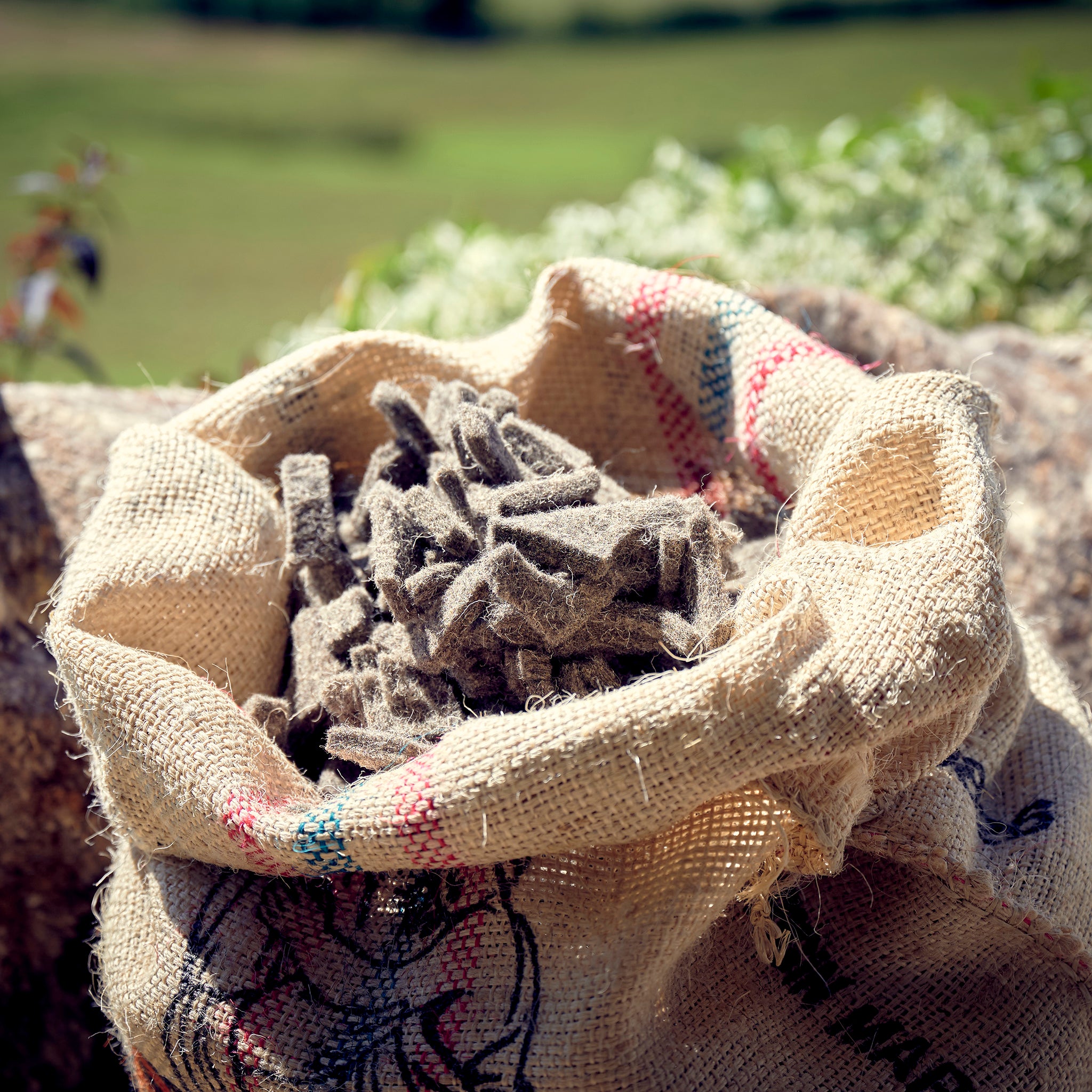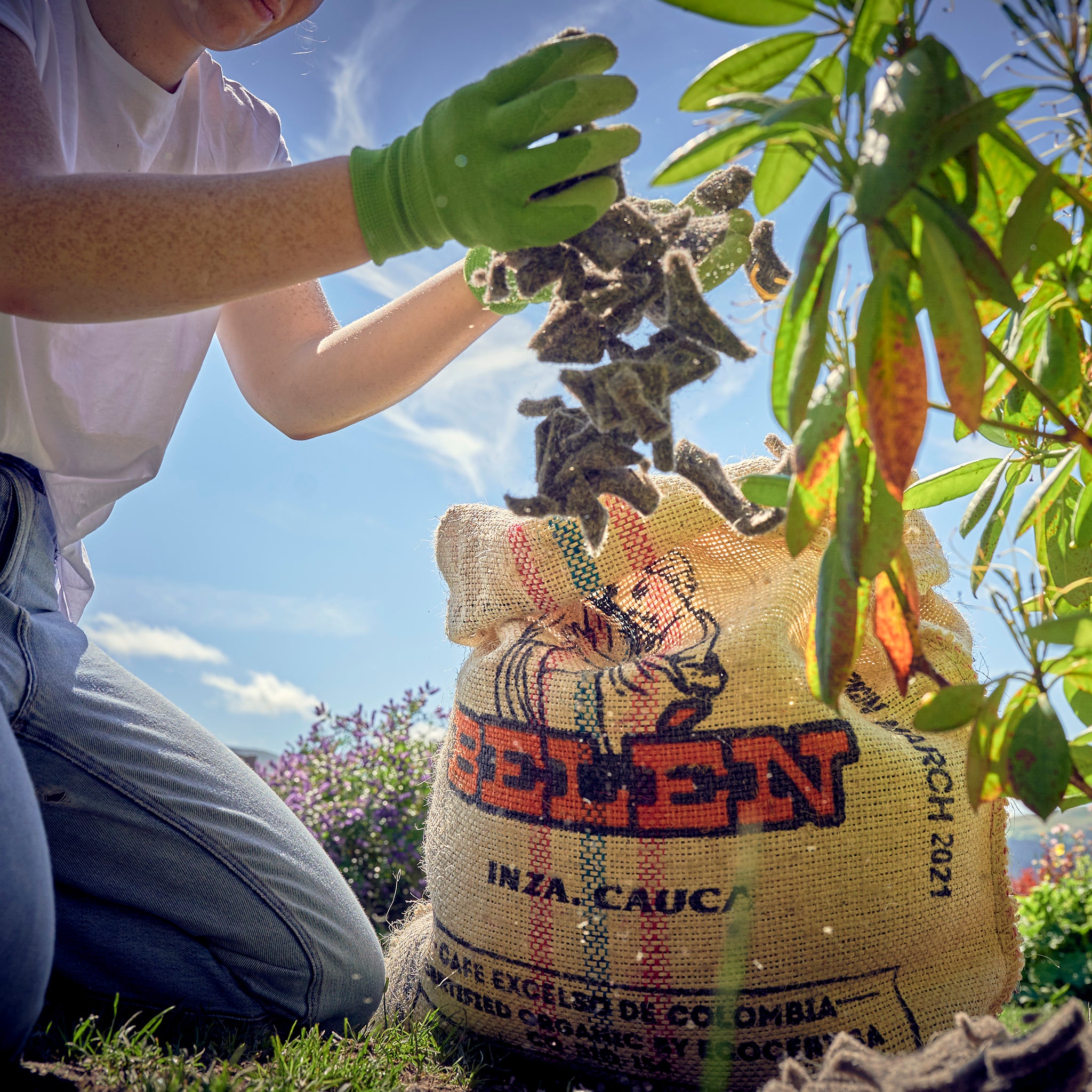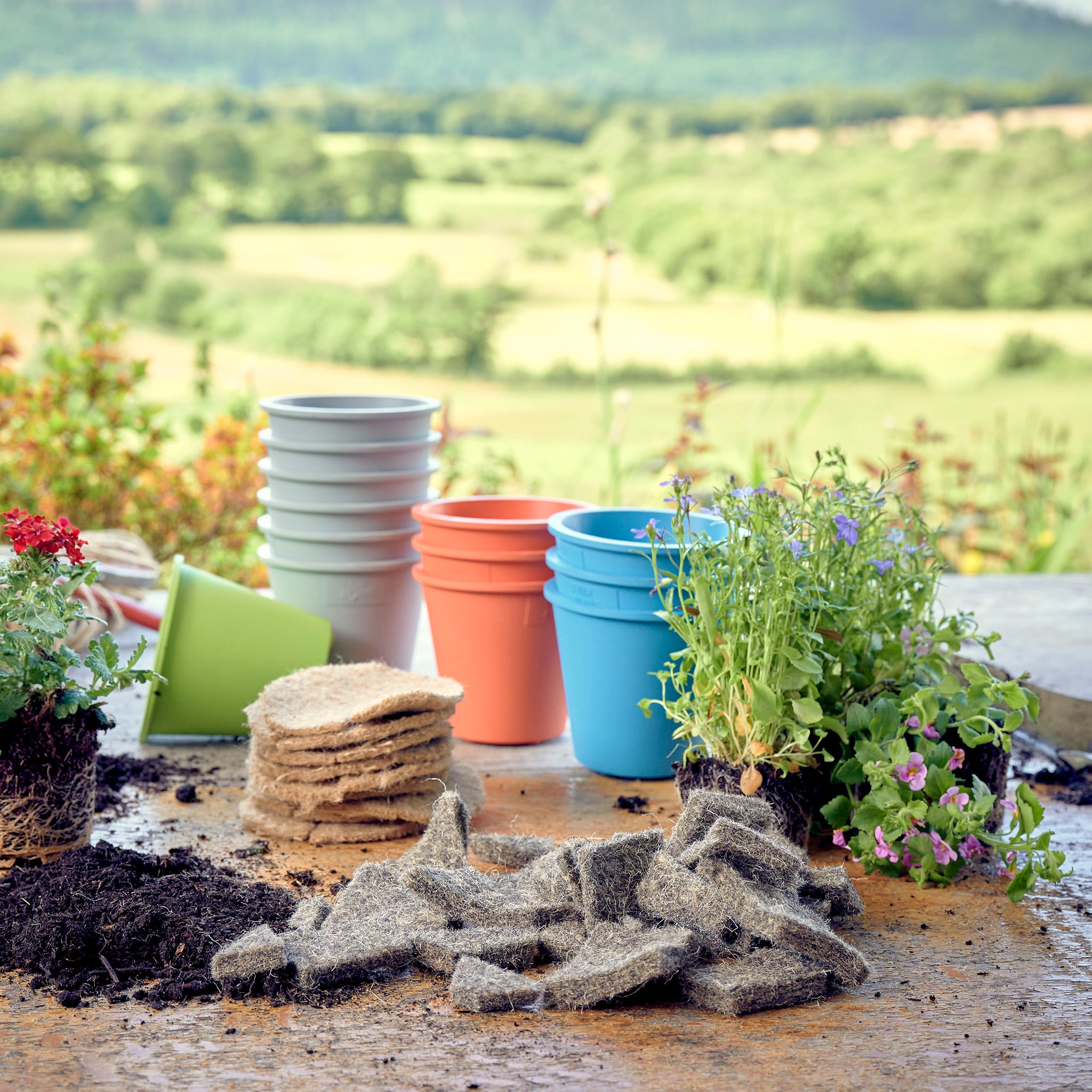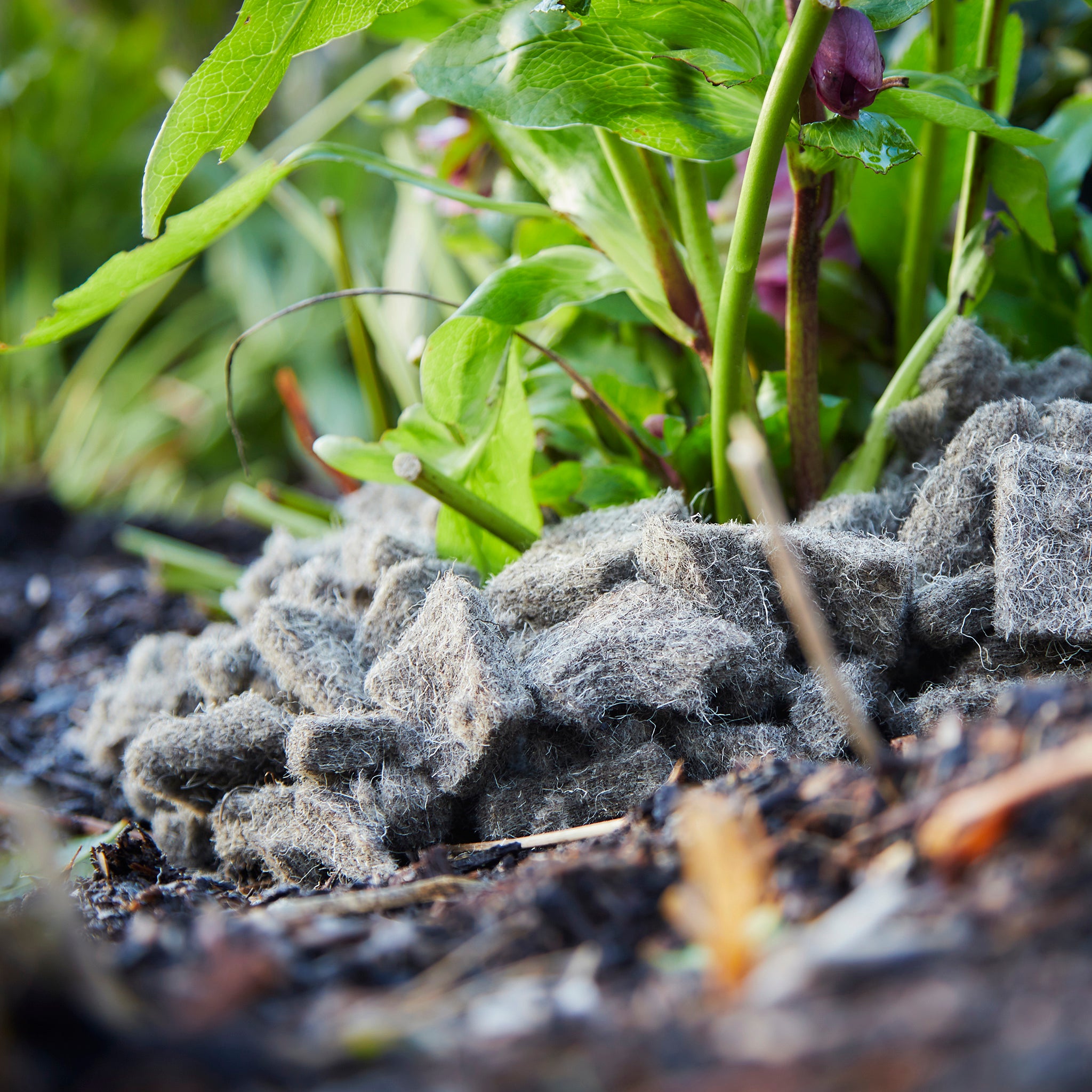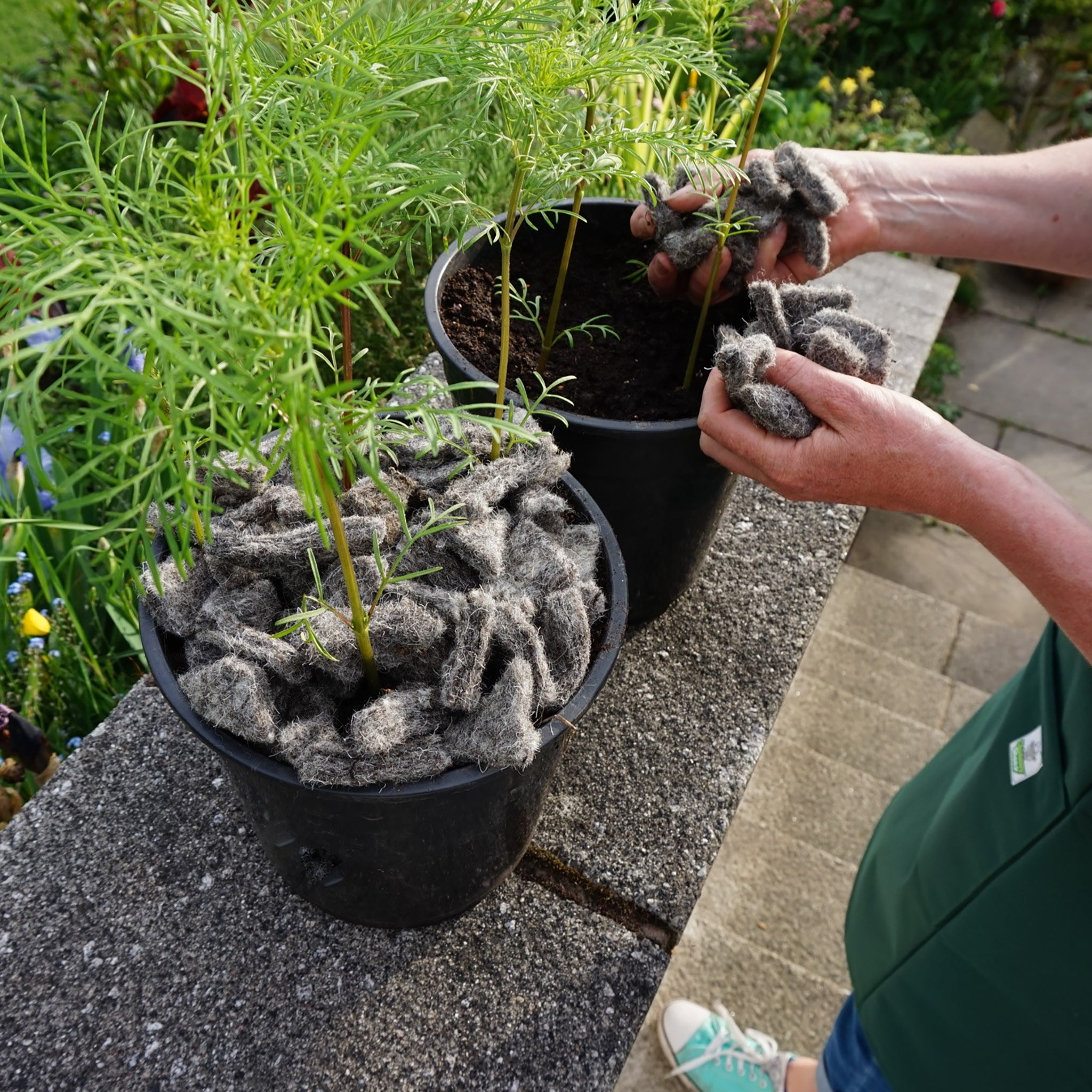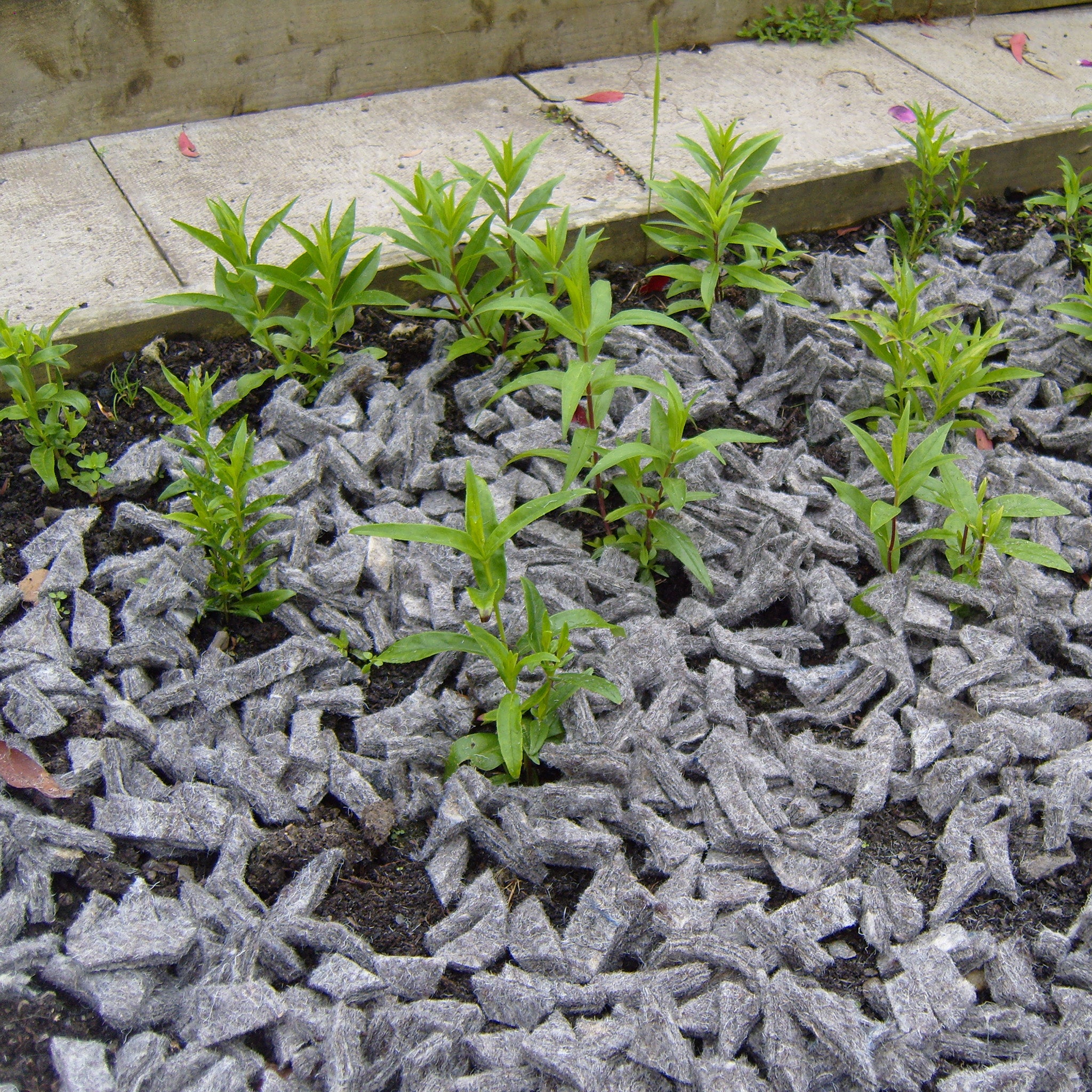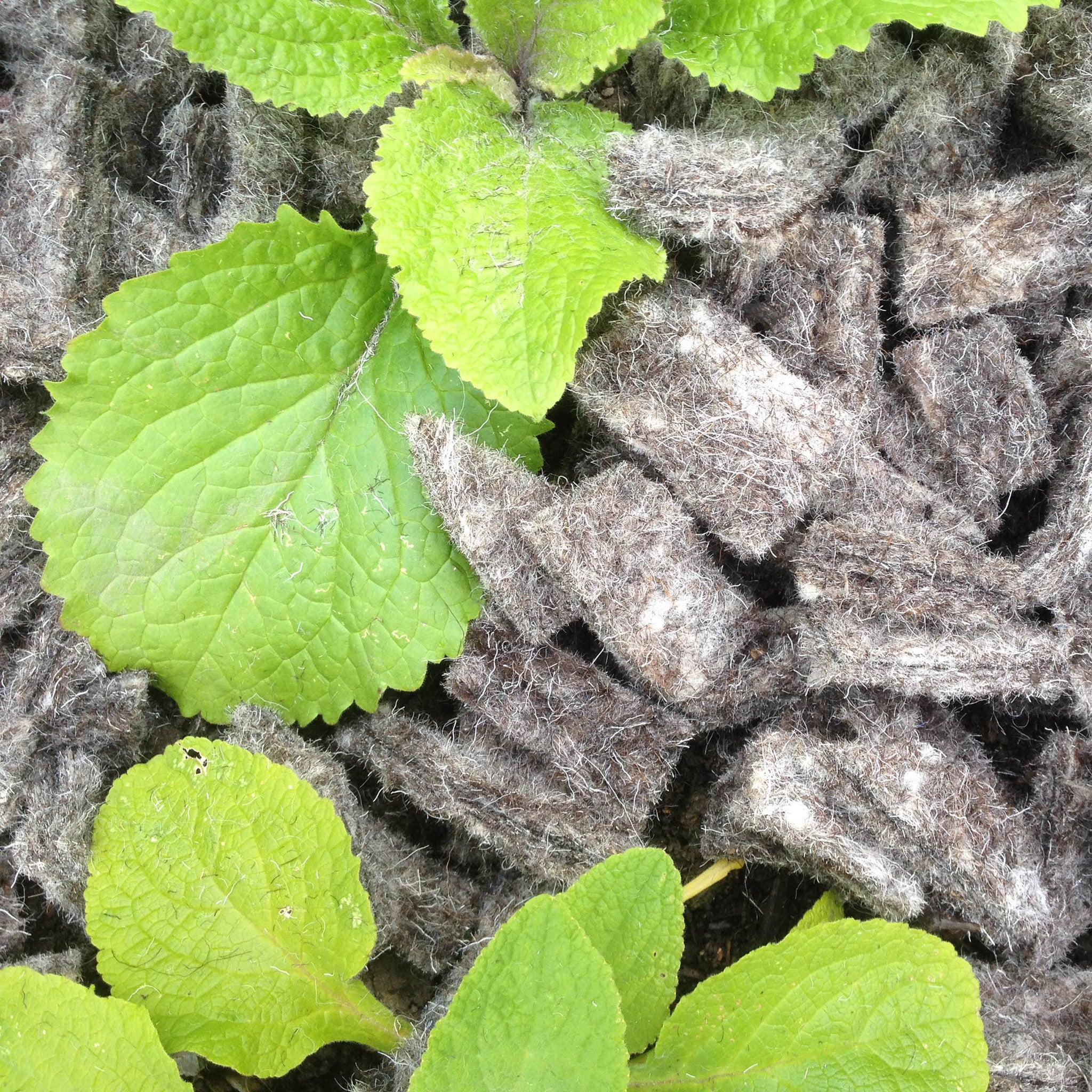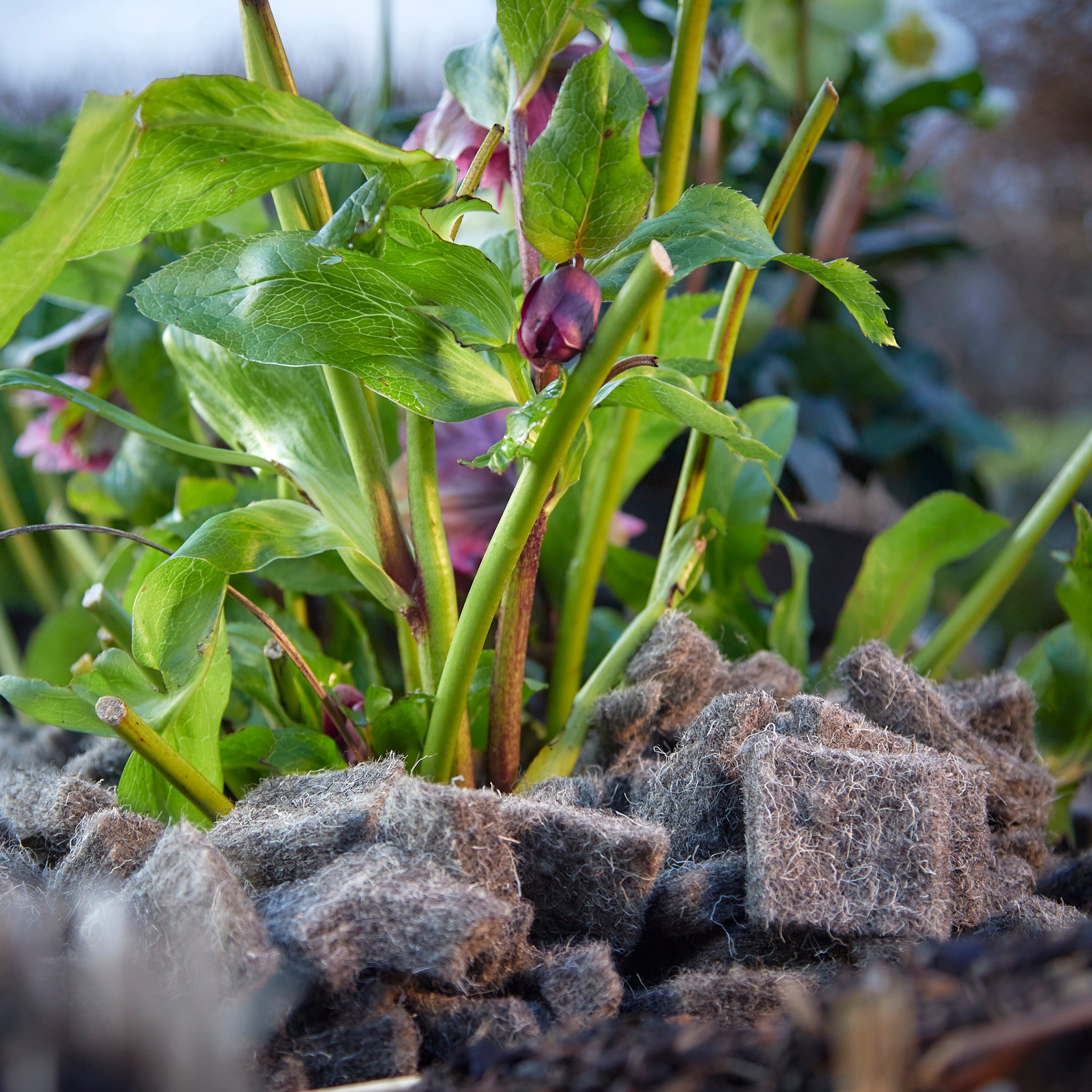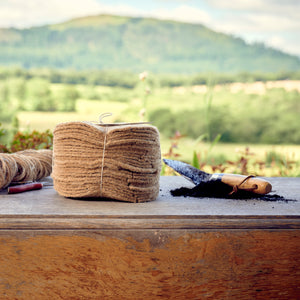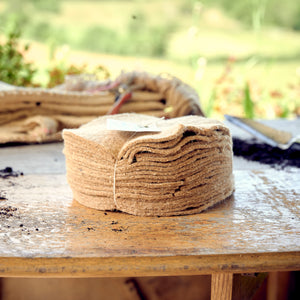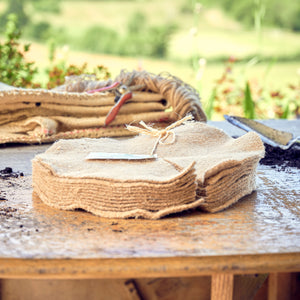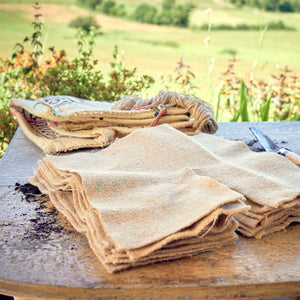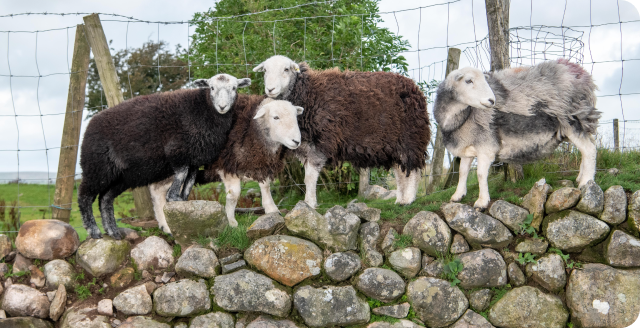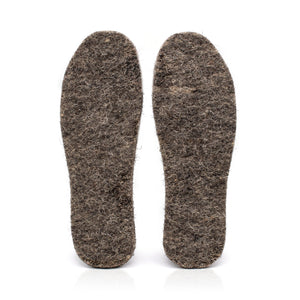What are these felt garden mulch shillies made from?
These felt garden mulch shillies are made from 100% sheep’s wool which is totally biodegradable. Herdwick sheep’s wool to be precise! You can read more about how we source our wool here.
Our chimney draught excluders are made to fit flues of all shapes and sizes, meaning that we’re quite often left with lots of scrap Herdwick felt. We hate waste at Chimney Sheep, so we cut the scraps into even smaller pieces and the result is a garden mulch that works brilliantly and bears a pleasing resemblance to the traditional slate shillies!
What are the benefits of mulch?
The benefits of mulch are widespread, both for domestic gardeners and widescale horticulturalists, farmers and foresters.
Here are a few of the benefits of mulch:
-
Conserves water – mulch conserves water by reducing water evaporation from the soil. Mulch allows water to permeate through it into the soil below. However, the barrier the mulch forms between soil and the air reduces the amount of water that evaporates off the soil’s surface. Studies of mulch in drought-prone countries have demonstrated how the water-saving properties of mulch improve crop growth.
-
Naturally suppresses weeds – using mulch to cover soil and compost where plants or crops are growing creates a natural barrier against weeds. The weeds don’t have access to light, can’t photosynthesise, and therefore perish and eventually rot away into the ground.
-
Reduces competition for water and nutrients – by reducing the number of weeds mulch ensures that there is less competition for plants. This means they can access more water and nutrients, helping them to grow more effectively! When looking at this in an agricultural context, using mulch reduces the large-scale use of herbicides which is beneficial both to the wider environment and us.
-
Reduces temperature fluctuations – Mulch protects plant roots against temperature changes by acting as an insulator. They help to regulate soil temperature to keep plant roots cool in the summer and warm in the winter ensuring plants can continue to grow well.
Why do these felt garden mulch shillies make such great mulch?
Gardening mulch is commonly used to enrich the soil around plants, by acting as a protective shield. Mulch can be made of cardboard, straw, bark chippings or it could be something like our jute mulch mats. Wool, however, is also a great mulch with so many naturally occurring properties that help to protect plants and ensure they stay strong and healthy.
Our shillies make a great mulch because they are:
-
Naturally hygroscopic - Herdwick wool is naturally hygroscopic, meaning it absorbs moisture and releases it slowly. Choosing a garden mulch with excellent moisture-retaining properties, therefore, reduces the need for you to water your plants as much in the summer.
-
Snail & slug deterrent - the prickly surface of the wool does act as a natural slug repellent. They HATE the texture of the wool which means the greedy mollusks stay away. You can read more about how to use them to deter slug and snails below.
-
Insulating - Just as the Chimney Sheep acts as an incredibly nifty draught-proofing solution for your home, the highly durable and insulating properties of Herdwick wool, can also help to barricade soil and balance extreme temperatures. This is particularly important for young, more delicate plants that need a bit of extra TLC when it's cold.
-
Naturally nutrient-dense – wool is naturally full of nitrogen, potassium and phosphate which helps with strong, healthy plant growth. As the wool biodegrades and composts down, these nutrients are released into the soil to benefit your plants!
How do I use these wool shillies?
The great thing about these shillies is that they can be used in pots for individual plants or across beds to protect a whole area. You will need approximately 1kg of felt shillies per 1 square metre of soil.
To use them on potted plants, just pile up the shillies around the base of the plant and across the diameter of the pot.
For use on beds, spread them out across the whole area. If there are particular plants in the bed that need an extra bit of protection (delicate plants or ones that are vulnerable to slugs), ensure you give pile the wool shillies around the base of the plant.
If you find that your shillies tend to blow away in the wind, you can water them in which will help to make them slightly weightier.
Our felt shillies are now packaged using recycled coffee sacks which can also be used in your garden. They could also be used as mulch, a bit like our jute mulch roll as they are completely biodegradable or to collect leaves in the autumn to create a rich leaf mulch.
Does wool garden mulch help to deter slugs and snails?
Yes, the prickly surface of the wool does act as a natural slug repellent. However, to increase the felt shillies snail and slug repelling properties, we recommend that you also try this simple recipe for slug repelling garlic water.
- Firstly, crush and then boil two bulbs of garlic to a pulp, in two pints of water.
- Sieve the mixture and then top it back up to two pints, using cold water.
- Leave the mixture to cool and store in a container (e.g plastic milk container).
- When ready to use, dilute two tablespoons of the mixture per gallon of water and then pour it over your felt shillies.
What are these felt garden mulch shillies made from?
These felt garden mulch shillies are made from 100% sheep’s wool which is totally biodegradable. Herdwick sheep’s wool to be precise! You can read more about how we source our wool here.
Our chimney draught excluders are made to fit flues of all shapes and sizes, meaning that we’re quite often left with lots of scrap Herdwick felt. We hate waste at Chimney Sheep, so we cut the scraps into even smaller pieces and the result is a garden mulch that works brilliantly and bears a pleasing resemblance to the traditional slate shillies!
What are the benefits of mulch?
The benefits of mulch are widespread, both for domestic gardeners and widescale horticulturalists, farmers and foresters.
Here are a few of the benefits of mulch:
-
Conserves water – mulch conserves water by reducing water evaporation from the soil. Mulch allows water to permeate through it into the soil below. However, the barrier the mulch forms between soil and the air reduces the amount of water that evaporates off the soil’s surface. Studies of mulch in drought-prone countries have demonstrated how the water-saving properties of mulch improve crop growth.
-
Naturally suppresses weeds – using mulch to cover soil and compost where plants or crops are growing creates a natural barrier against weeds. The weeds don’t have access to light, can’t photosynthesise, and therefore perish and eventually rot away into the ground.
-
Reduces competition for water and nutrients – by reducing the number of weeds mulch ensures that there is less competition for plants. This means they can access more water and nutrients, helping them to grow more effectively! When looking at this in an agricultural context, using mulch reduces the large-scale use of herbicides which is beneficial both to the wider environment and us.
-
Reduces temperature fluctuations – Mulch protects plant roots against temperature changes by acting as an insulator. They help to regulate soil temperature to keep plant roots cool in the summer and warm in the winter ensuring plants can continue to grow well.
Why do these felt garden mulch shillies make such great mulch?
Gardening mulch is commonly used to enrich the soil around plants, by acting as a protective shield. Mulch can be made of cardboard, straw, bark chippings or it could be something like our jute mulch mats. Wool, however, is also a great mulch with so many naturally occurring properties that help to protect plants and ensure they stay strong and healthy.
Our shillies make a great mulch because they are:
-
Naturally hygroscopic - Herdwick wool is naturally hygroscopic, meaning it absorbs moisture and releases it slowly. Choosing a garden mulch with excellent moisture-retaining properties, therefore, reduces the need for you to water your plants as much in the summer.
-
Snail & slug deterrent - the prickly surface of the wool does act as a natural slug repellent. They HATE the texture of the wool which means the greedy mollusks stay away. You can read more about how to use them to deter slug and snails below.
-
Insulating - Just as the Chimney Sheep acts as an incredibly nifty draught-proofing solution for your home, the highly durable and insulating properties of Herdwick wool, can also help to barricade soil and balance extreme temperatures. This is particularly important for young, more delicate plants that need a bit of extra TLC when it's cold.
-
Naturally nutrient-dense – wool is naturally full of nitrogen, potassium and phosphate which helps with strong, healthy plant growth. As the wool biodegrades and composts down, these nutrients are released into the soil to benefit your plants!
How do I use these wool shillies?
The great thing about these shillies is that they can be used in pots for individual plants or across beds to protect a whole area. You will need approximately 1kg of felt shillies per 1 square metre of soil.
To use them on potted plants, just pile up the shillies around the base of the plant and across the diameter of the pot.
For use on beds, spread them out across the whole area. If there are particular plants in the bed that need an extra bit of protection (delicate plants or ones that are vulnerable to slugs), ensure you give pile the wool shillies around the base of the plant.
If you find that your shillies tend to blow away in the wind, you can water them in which will help to make them slightly weightier.
Our felt shillies are now packaged using recycled coffee sacks which can also be used in your garden. They could also be used as mulch, a bit like our jute mulch roll as they are completely biodegradable or to collect leaves in the autumn to create a rich leaf mulch.
Does wool garden mulch help to deter slugs and snails?
Yes, the prickly surface of the wool does act as a natural slug repellent. However, to increase the felt shillies snail and slug repelling properties, we recommend that you also try this simple recipe for slug repelling garlic water.
- Firstly, crush and then boil two bulbs of garlic to a pulp, in two pints of water.
- Sieve the mixture and then top it back up to two pints, using cold water.
- Leave the mixture to cool and store in a container (e.g plastic milk container).
- When ready to use, dilute two tablespoons of the mixture per gallon of water and then pour it over your felt shillies.









